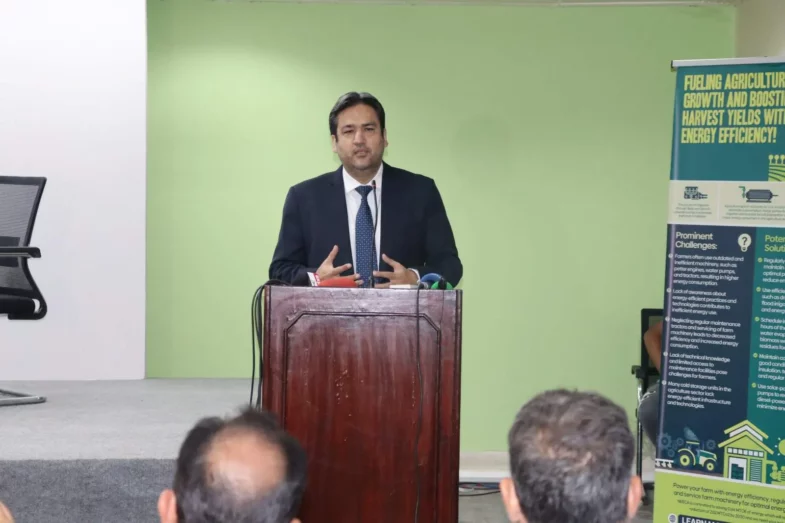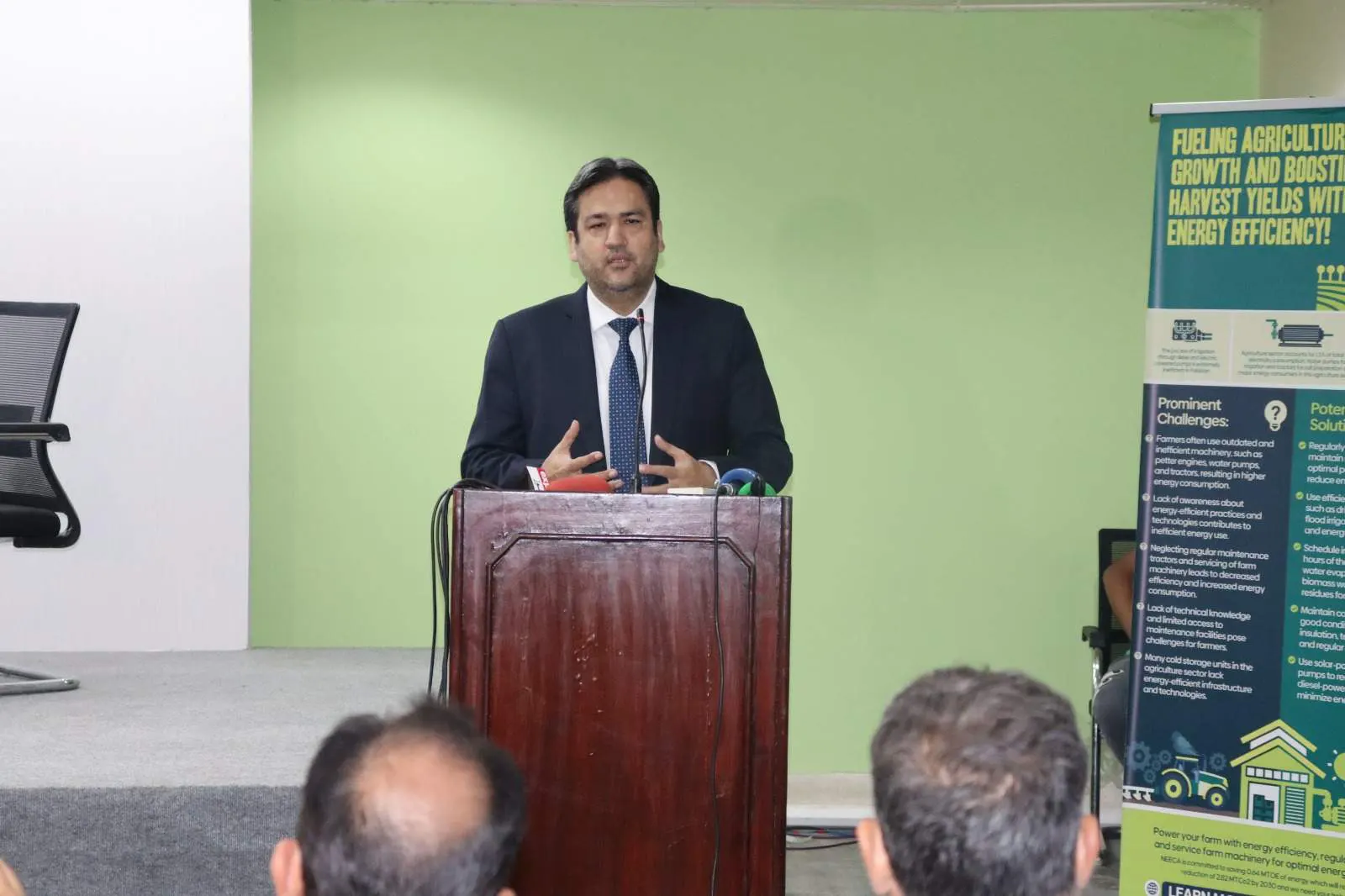Pakistan can save up to PKR $6.4 billion by implementing structural and behavioural changes related to energy conservation.

Pakistan can save up to PKR $6.4 billion by implementing structural and behavioural changes related to energy conservation. The National Energy Efficiency & Conservation Authority (NEECA) has developed a roadmap for finishing this enormous task, which will necessitate the support and cooperation of all parties involved, including ministries, corporate partners, foreign donors, provincial governments, and other relevant organisations.
The National Energy Efficiency & Conservation (NEEC) Policy 2023 and the National Action Plan 2023, which the Federal Cabinet recently approved, were presented to the media on Monday by Dr. Sardar Mohazzam, Managing Director (MD) of the NEECA, and these opinions were expressed.
The NEEC currently deals with four key areas: the power sector (energy & gas), building codes, transportation, and agriculture, according to MD NEECA, who provided a detailed point-by-point overview of these specific areas and informed the audience that input from all the stakeholders, foreign donors, and experts from the public and private sectors was obtained when preparing the policy.
According to Dr. Mohazzam, the world was prioritising energy efficiency and conservation more and more, and Pakistan would eventually have to do the same. According to him, energy efficiency not only eased the strain on the government coffers, but it also promoted climate mitigation and adaptation. Above all, it is consumer-friendly and can help the general public get rid of their high utility bills.
He claimed that NEECA, under the direction of Prof. Ahsan Iqbal and Shahid Khaqan Abbasi, worked feverishly to draught the policy and that the Cabinet then approved and adopted the national action plan one month later. We could approach donors thanks to the NAP, he claimed.
Through a presentation, NEECA Director Fasih Haider briefed the media on the key components of the NEEC Policy and the Action Plan.
According to him, the NEEC Policy 2023 has some important regulatory elements, such as ensuring compliance with minimum energy performance standards and labelling regimes for electric and gas appliances, equipment and products (such as fans, air conditioners, refrigerators, motors and LEDs).
Aside from requiring energy-efficient building codes, it also requires energy audits of designated consumers’ facilities and operations, accreditation of testing labs, and the creation of industrial assessment centers in partnership with universities in the nation’s industrial hubs.
The policy also mandates the purchase of energy-efficient equipment in all public procurements by incorporating Minimum Energy Performance Standards (MEPS) into PPRA rules, evaluates energy-efficient appliances during basic load profiling for electricity or gas connection across commercial, household, industrial and agricultural sectors, and prohibits the production of inefficient lighting such as incandescent bulbs and all types of high-intensity discharge lighting.
The NEEC Policy and NAP have achieved significant progress, with a public campaign planned to raise awareness and move towards implementation. The PM’s leadership provided support and encouragement in finalizing the policy. The policy offers concessional financing for retrofitting buildings, appliances, and industrial facilities, aiming to shorten payback times and encourage investments in energy efficiency and conservation.
